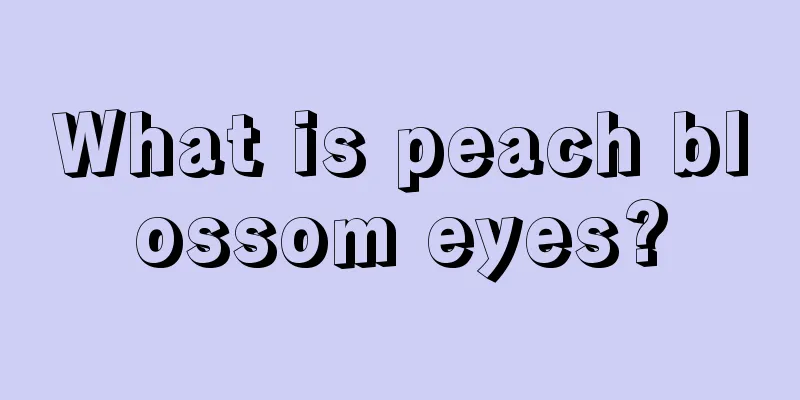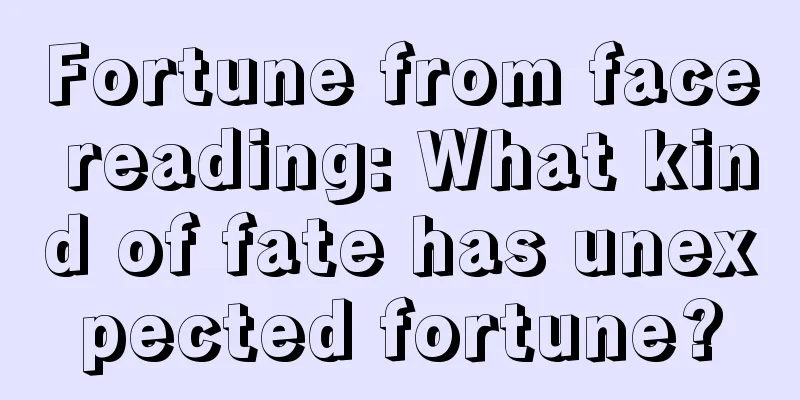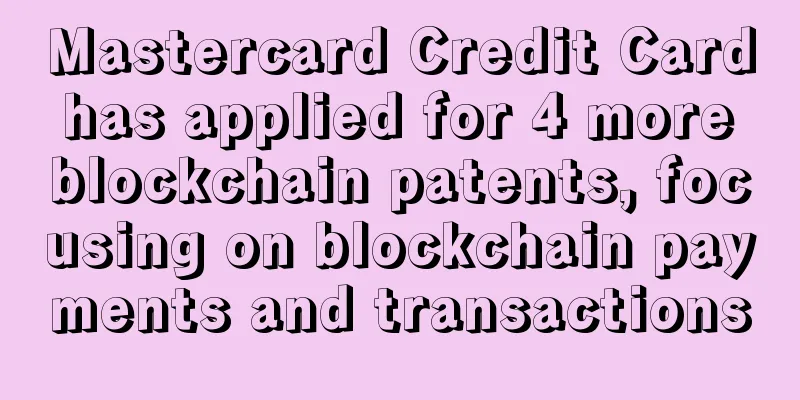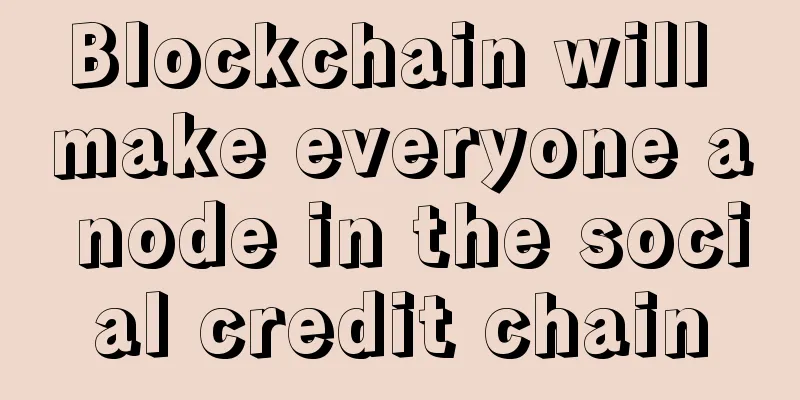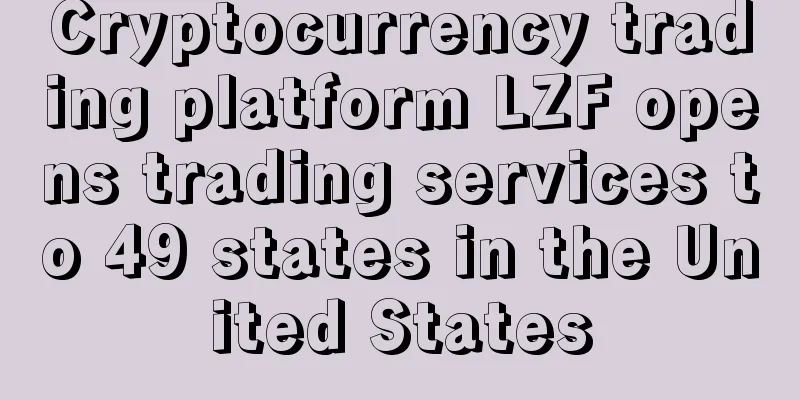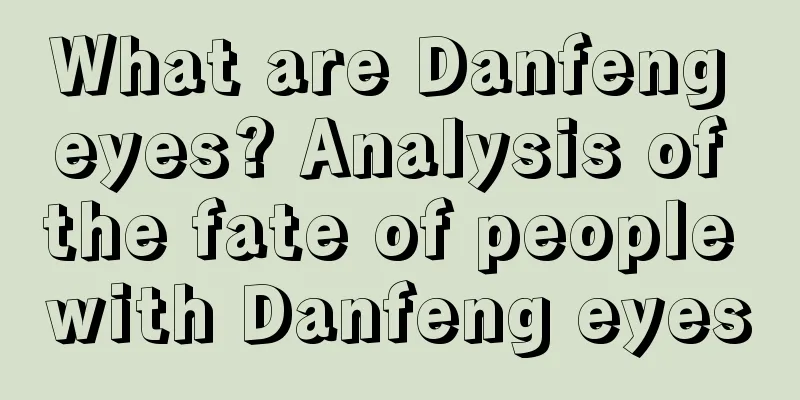How to understand the "Announcement on Preventing the Risks of Virtual Currency Transaction Speculation" issued by the three associations?
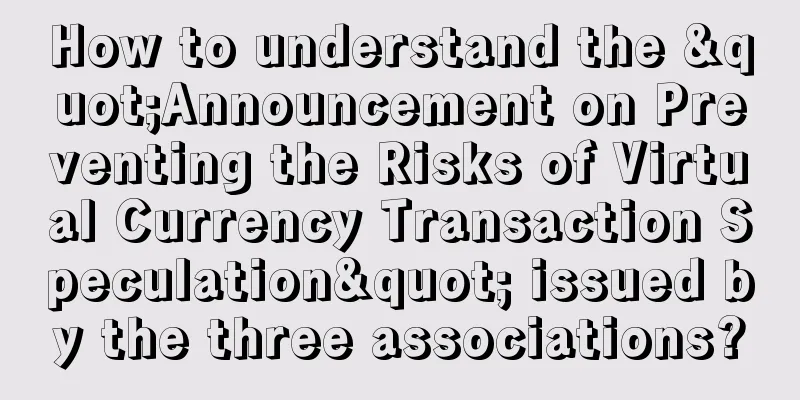
|
Since the end of 2020, the crypto digital asset market has entered a bull market. First, mainstream digital assets represented by Bitcoin and Ethereum have continuously broken new highs. Bitcoin once broke through $64,800, more than three times the highest point of the previous bull market. The price of Ethereum has also continuously broken through the highest point, reaching $4,370. Author | Lianfa Guo Yatao —1— Background of the AnnouncementSince the end of 2020, the crypto digital asset market has entered a bull market. First, mainstream digital assets represented by Bitcoin and Ethereum have continuously broken new highs. Bitcoin once broke through $64,800, more than three times the highest point of the previous bull market. The price of Ethereum has also continuously broken through the highest point, reaching $4,370. In April this year, Dogecoin began to surge. Dogecoin was the representative, followed by other meme-type tokens such as SHIB (Shiba Inu Coin), AKITA (Akita Inu Coin), and PIG (Pig Coin), which also experienced a surge, and the FPMO sentiment was prevalent. If "everyone is speculating in cryptocurrency" is an exaggeration, then "encrypted digital assets going viral" should be an objective evaluation. As the "Announcement" said, "Recently, the price of virtual currencies has skyrocketed and plummeted, and virtual currency trading speculation has rebounded, seriously infringing on the property safety of the people and disrupting the normal economic and financial order." This is the general background for the issuance of the "Announcement." In fact, some banks including CITIC Bank have issued announcements earlier that "no institution or individual may use CITIC Bank accounts for Bitcoin and other cryptocurrency transactions", which is itself a signal. —2— Legal attributes of announcementsWhether it is the "Notice on Preventing Bitcoin Risks" issued by the People's Bank of China and other five ministries on December 5, 2013, or the "Announcement on Preventing Token Issuance and Financing Risks" issued by the People's Bank of China and other seven departments on September 4, 2017, or the "Risk Warning on Preventing Illegal Fundraising in the Name of "Virtual Currency" and "Blockchain"" issued by the People's Bank of China and other five departments on August 24, 2018, the issuing entities of the above three documents are all national ministries or relevant departments. This is not the case with the Notice, which was issued by three associations. First, the China Internet Finance Association was established by the People's Bank of China in conjunction with the China Banking Regulatory Commission, China Securities Regulatory Commission, China Insurance Regulatory Commission and other relevant state ministries and commissions in accordance with the requirements of the Guiding Opinions on Promoting the Healthy Development of Internet Finance (Yinfa [2015] No. 221) jointly issued by 10 ministries and commissions including the People's Bank of China, China Banking Regulatory Commission, China Securities Regulatory Commission, China Insurance Regulatory Commission, Ministry of Industry and Information Technology, Ministry of Public Security, and State Administration for Industry and Commerce on July 18, 2015 with the approval of the Party Central Committee and the State Council. On December 31, 2015, with the approval of the State Council, the Ministry of Civil Affairs approved the establishment of the China Internet Finance Association. Let’s look at the China Banking Association. The China Banking Association (CBA) was established in May 2000. It is a national non-profit social organization approved by the People’s Bank of China and the Ministry of Civil Affairs and registered with the Ministry of Civil Affairs. It is the self-regulatory organization of China’s banking industry. Let's look at the China Payment and Clearing Association. The association was established in May 2011. It is a national non-profit social group legal person approved by the State Council and registered with the Ministry of Civil Affairs. It is a self-regulatory organization for China's payment and clearing service industry. The business supervisory unit is the People's Bank of China. It is not difficult to find that the three associations actually represent three industries, representing the three industries that encrypted digital assets may involve, namely the Internet finance industry, the banking industry, and the payment and clearing service industry. Once the issuing entity of the "Announcement" is clarified, the nature of the "Announcement" will be clear. The "Announcement" issued by the industry association is essentially an industry self-discipline rule and does not have legal force. It is a reminder to the member units of the industry association. In this respect, the "Announcement" is essentially different from the aforementioned "94 Announcement". —3— Overall content of the announcementCompared with the aforementioned "September 4th Announcement", the "Announcement" does not contain any substantial new content, and its main purpose is to strengthen the implementation of the above-mentioned documents. The main contents are as follows: (1) Denying the monetary attributes of virtual currency, but recognizing it as a virtual commodity. There is no doubt about this. Bitcoin itself is not a currency. From a very early time, the term virtual currency was no longer used, but "crypto assets" or "encrypted digital assets". A country's currency is related to monetary sovereignty and cannot be called casually. At the same time, Bitcoin’s virtual commodity attributes are also currently recognized. In addition, no institution may engage in the obligation to exchange legal currency and virtual currency, which is itself the content of the September 4th Announcement. Of course, token issuance and financing is still suspected of being a crime, and we will not go into details here. (2) Financial institutions, payment institutions, etc. are not allowed to engage in businesses related to virtual currencies. It mentions that virtual currency should not be used to price products and services. This easily reminds us of the "Bitcoin payment incident" of GAC Aion. Such behavior is not allowed under domestic policies, not only for financial institutions and payment institutions. In addition, it is specifically mentioned that Internet platform enterprise member units are not allowed to provide online business premises, commercial displays, marketing promotions, paid traffic diversion and other services for virtual currency-related business activities. If they find any relevant clues, they should report them to the relevant departments in a timely manner and provide technical support and assistance for related investigations and investigative work. Speaking of this, there is also a more interesting question. Some people say that such a statement denies the legitimacy of platforms such as Huobi in China? In fact, since the "September 4th Announcement", the exchange's business has been prohibited in the country, and there is no question of legality in itself. (3) Remind the public to raise their awareness of risk prevention and guard against loss of property and rights. In this paragraph, it is mentioned that "from the perspective of my country's current judicial practice, virtual currency transaction contracts are not protected by law, and the consequences and losses caused by investment transactions shall be borne by the relevant parties themselves." In fact, I think this statement itself refers to participation in some illegal financial activities, such as illegal fund-raising, pyramid schemes, Ponzi schemes, etc. According to the newly issued illegal fund-raising regulations, participants in such activities must bear their own risks. How to understand the new illegal fund-raising regulations that fund-raising participants bear their own losses? Otherwise, it would be self-contradictory to recognize its virtual commodity attributes while denying its protection. The author believes that my country currently does not recognize the monetary attributes of "virtual currencies" such as Bitcoin, and prohibits its circulation and use as currency and other financial activities, but does not deny that it can be equally protected by law as property in the general legal sense, nor does it prohibit its trading and circulation as ordinary virtual commodities. In other words, normal digital asset trading activities do not constitute "token issuance and financing" in themselves, nor do they constitute token financing trading platforms engaging in "exchange business between legal tender and tokens, 'virtual currency'" or "providing pricing, information intermediary and other services." It also does not violate the various regulations of financial institutions and non-bank payment institutions on token issuance and financing. Therefore, this type of transaction is not prohibited by Chinese law and should be legal and valid. |
Recommend
What does a man's thick and dark eyebrows mean?
The upper part of the eyes is the eyebrows, and e...
How to read the wealth line and career line in palmistry
As we all know, there are many different lines on...
What kind of women are easily bribed by money?
What kind of women are easily bribed by money? 1....
How can blockchain really change the insurance industry?
Rage Comment : If blockchain wants to truly chang...
How does Bitcoin scale? Understand the progress of Bitcoin off-chain scaling technology and investment status
In the Bitcoin off-chain scaling space, there has...
A complete analysis of the physical characteristics of stingy men. What kind of men look like if they are petty and narrow-minded?
In life, we must learn to be able to take on and l...
Illustration of heron eyes
Heron Eyes Poor Characteristics of egret eyes <...
Fortune and health from facial features
Through physiognomy, we find that when fortune is...
Is it good for a woman to have inverted eyebrows?
Is it good for a woman to have inverted eyebrows?...
When you are in a good mood after get off work, you will go home later.
Due to the high pressure at work, many people don...
Hackers hacked into 110 nursing homes in the U.S. and demanded $14 million in Bitcoin
According to TNW, hackers recently attacked compu...
What is protruding ears?
Everyone's ears have different shapes. In tra...
Is the fate of a person with a narrow forehead good? Do people with a narrow forehead have good personalities?
People with narrow foreheads tend to be stubborn ...
Which faces have a life of mediocrity?
Which faces have a life of mediocrity? The first ...
Is it true that an oval face is good for attracting bad luck in love?
What does an oval face look like? The oval face i...

